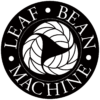A lot of of emphasis is placed on sustainable sourcing when it comes to coffee. But what about sustainable coffee production? Each week from the roasting of Karvan Coffee, we are left with a number of by-products that we use in other areas, to reduce waste and increase recycling.
Here are some of the ways that we repurpose and recycle our coffee roasting by-products:
Hessian Coffee Sacks
Hessian sacks are a part of life when it comes to coffee roasting. At the end of each week we always have a large number of hessian sacks left over. Rather than throwing them away, we always try to repurpose or re-home the bags. In-house, these are often used as ‘wrapping paper’ for our online shop orders. We have used them to cover chairs and tables for events – we have even repurposed hessian sacks as curtains for the shop! We also provided hessian to local community groups, schools and animal refuges. For a gold coin donation, members of the public can take hessian sacks to use, with all proceeds going to our Coffee For Classes program.
BioPak Compost Service
We supply our wholesale customers with BioPak Biodegradable packaging. BioPak is an Australia owned environmentally responsible packaging company. Their products are made from corn-based bioplastic rather than conventional petroleum-based plastic. This is a rapidly renewable resource and certified carbon-neutral. BioPak packaging can be composted along with food waste, which is made into RichGro fertiliser. Read more about this here.
Coffee Grinds
Coffee grinds are fantastic for your garden and often used as a deterrent against common garden pests such as snails, slugs and ants. We take the coffee grounds leftover from our barista training classes and spread onto the garden beds out the front, which our plants love.
Coffee Chaff
Coffee Chaff is the dried husk of the coffee bean, which comes off during the roasting process. Leaf Bean Machine recycle the chaff created during our roasting process by using it on the gardens beds outside our warehouse. We also donate the chaff to local gardening groups and schools, to use in their own gardens.
Sustainability doesn’t always mean huge changes. Even the little changes are helping to progress towards a more sustainable future. Check out our blog on why recycling is so important in the hospitality industry.



